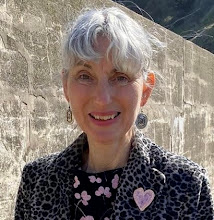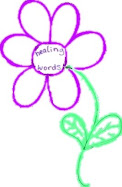Africa - Oshun and Isis
More candidates for the Great Goddess:
Isis is the Greek name of the Egyptian goddess "Aset" or
"Eset." Images of Isis typically show her wearing on her head a sign
representing the throne symbol or a crown of cow-horns around a sun disk. Her special
symbol is an amulet known as the "tyet." Isis was a very popular
Egyptian goddess who was associated with Demeter and Hera, Greek goddesses. In
fact, Isis was so well liked by the Greeks that she also became popular among
the Romans. Isis was thought to watch over the people of the Nile while her
husband Osiris spread civilization to the rest of the world.
Oshun, or Ochun in the Yoruba
religion, is an deity who
reigns over love, intimacy, beauty, wealth and diplomacy. She is worshipped
also in Brazilian Candomblé Ketu, with the name spelled Oxum. (She should not be confused, however,
with a different Orisha of a similar name spelled "Osun," who is the
protector of the Ori, or our heads and inner souls. ) Ochun
relates mostly to woman but also man.
ANGER
Yvette
Anything can make you blow
No-one knows how you feel
Great feeling when you clear the
air
Everyone holds that anger gene
Rejoice, rejoice! Sometimes you
need to hear your voice!
A couple of minor digressions. The wonderful poem "Flying
Crooked" which I encountered by chance thanks to a talk given by the
British composer Ian Venables who has set it to music. It was written by
Robert Graves but I would never have guessed it:
Flying Crooked
Robert Graves
The butterfly, the cabbage white,
(His honest idiocy of flight)
Will never now, it is too late,
Master the art of flying straight,
Yet has — who knows so well as I? —
A just sense of how not to fly:
He lurches here and here by guess
And God and hope and hopelessness.
Even the aerobatic swift
Has not his flying-crooked gift.
(His honest idiocy of flight)
Will never now, it is too late,
Master the art of flying straight,
Yet has — who knows so well as I? —
A just sense of how not to fly:
He lurches here and here by guess
And God and hope and hopelessness.
Even the aerobatic swift
Has not his flying-crooked gift.
We decided it is good to have both qualities - to enjoy some crooked flying and know when to go straight.
The second digression was a look at another ancient Egyptian goddess that is less well-known but certainly one of the oddest:
Nekhebet - Protectress of women in childbirth,
this Egyptian Vulture Goddess suckled the royal children and the Pharaoh. She
is the protectress of ancient Upper Egypt. Goddess of Death & Rebirth.
Egypt's oldest oracle was the shrine of Nekhebet. The Egyptian word for Mother was the sign of the vulture.
Isn't she sweet? I was wondering if we could revive her cult for Mother's Day? Would your mother enjoy being called "vulture"?
Here's a thought:
A last word goes to Yvette:
(poem inspired by Robert Graves' poem "The White Goddess" -
Here's a thought:
Siriol
The
Mother Goddess
Mother goddesses don't make good
mothers
They ignore their daughters
And spend their time protecting others
A last word goes to Yvette:
(poem inspired by Robert Graves' poem "The White Goddess" -
White Goddess or Is She a Shade
of Grey?
Yvette
Pursed,
pouting and puckered up
These rowan-berry lips
Gave way to
curvy hips.
The
song-bird fanfare
Heralded her
presence
Tall and
willowy in essence
She came in
bold as brass
Nearly
falling on her ass …..ets
So complex
full of facets
In the next
bright bolt
We came to a
halt
No more
bright light










.jpg)


